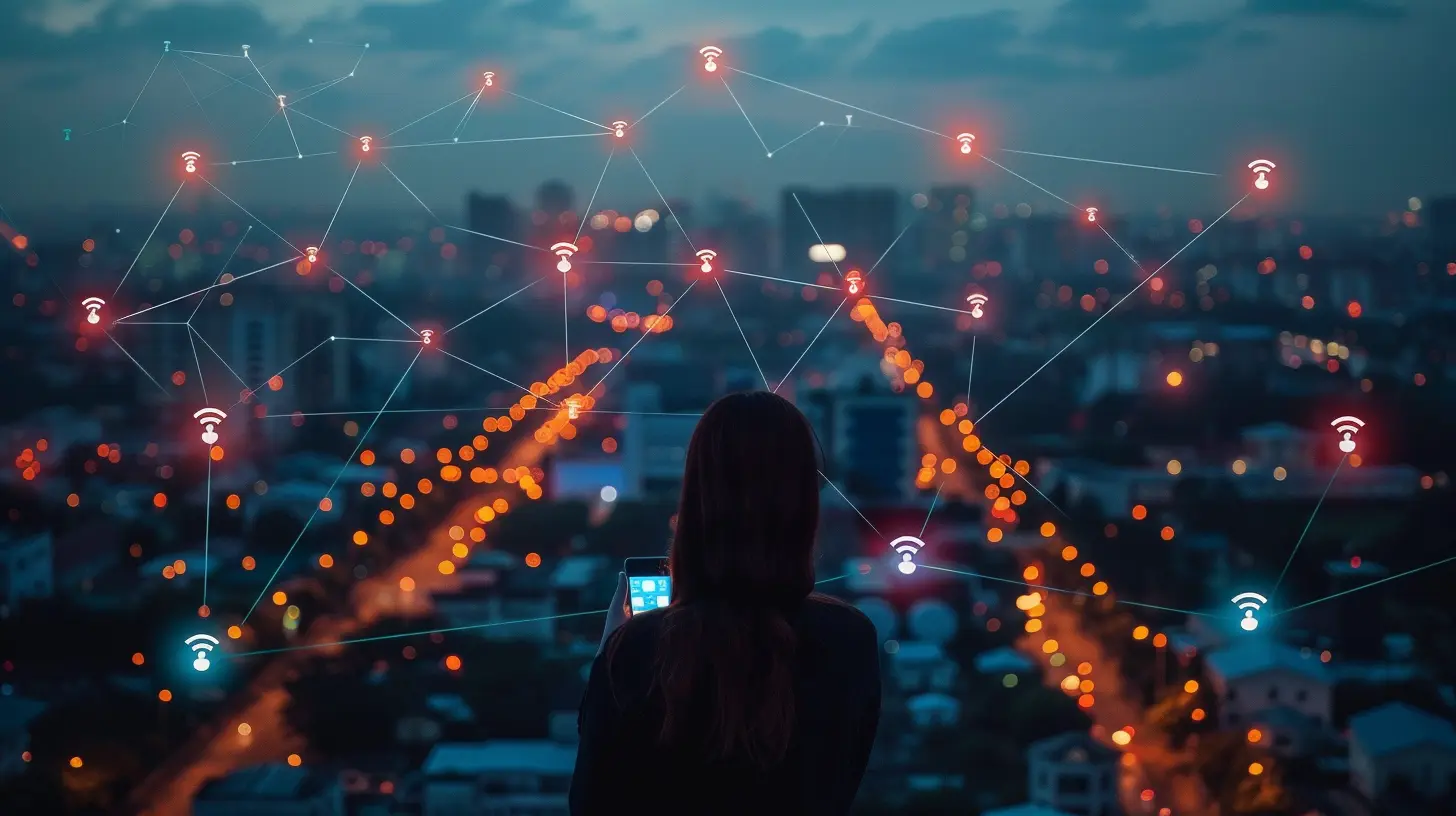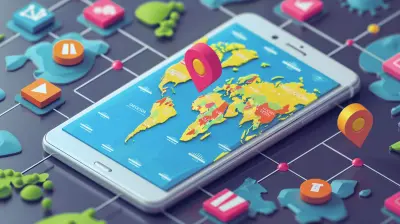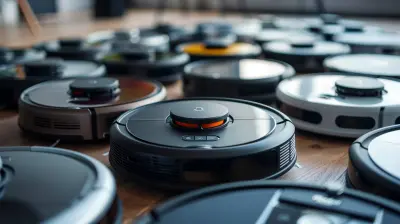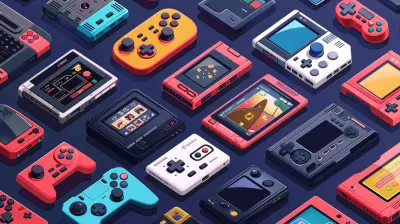Mobile Connectivity: The Role of Smartphones in the IoT Sphere
4 May 2025
The world is getting more connected by the day, and at the heart of this transformation lies the Internet of Things (IoT). From smart homes to connected cars, IoT is revolutionizing how we interact with technology. But have you ever stopped to think about the real MVP of this interconnected world? It’s right there in your pocket—your smartphone.
Smartphones have become the ultimate control hubs for IoT devices, seamlessly integrating with everything from smart thermostats to wearables. But how exactly do they drive the IoT revolution? And what does the future hold for this dynamic duo? Let’s dive in. 
The Power of Smartphones in the IoT Ecosystem
Smartphones: The Universal Remote for IoT
Think about it—your phone already connects to an insane number of devices. From adjusting your smart lights to managing security cameras, smartphones serve as the universal remote for IoT. Unlike traditional remotes that control a single device, smartphones can sync with multiple smart gadgets simultaneously, making them an indispensable part of the IoT ecosystem.Built-in connectivity features like Wi-Fi, Bluetooth, and NFC ensure that smartphones are always at the center of interactions. Whether it’s scanning a QR code to pair with a new device or using an app to control your smart appliances, your phone is doing all the heavy lifting.
5G and Edge Computing: Supercharging IoT through Smartphones
The rollout of 5G is a game-changer. With ultra-fast internet speeds and reduced latency, smartphones can now relay IoT commands almost instantly. Imagine self-driving cars communicating with traffic lights or smart medical devices sending real-time health updates to your doctor—5G makes this possible.Paired with edge computing, which processes data closer to where it's generated (rather than relying on cloud servers), smartphones can handle IoT interactions faster and more efficiently. This means that instead of waiting for data to travel to a cloud server and back, your smart devices can act on information in real-time, leading to smoother, faster responses. 
Real-World Applications of Smartphones in IoT
Smart Homes: The IoT Playground
Smart homes are one of the most popular use cases for IoT, and at the heart of it? Your smartphone.- Smart Thermostats: Adjust the temperature with an app on your phone.
- Connected Security Systems: Get live camera feeds, lock/unlock your doors, or receive alerts—all through your smartphone.
- Voice Assistants: While they play a big role, they often rely on smartphone apps for initial setup and customization.
Your smartphone isn’t just a remote control; it’s the foundation of a smart home ecosystem, allowing you to automate tasks and monitor everything in real time.
Wearables and Health Tracking: Personalized IoT
From smartwatches to fitness trackers, wearables have seamlessly integrated with smartphones to deliver real-time health insights.- Your smartwatch syncs with your phone to track steps, heart rate, and even sleep patterns.
- Smart rings and connected glucose monitors can send health data directly to apps, helping users stay on top of their well-being.
The health sector is also benefiting big time. With smartphones acting as gateways, IoT-enabled medical devices like smart insulin pens and ECG monitors can send critical health statistics to doctors remotely, ensuring timely medical interventions.
Smart Cities: Traffic, Payments, and Public Safety
Smartphones are also playing a crucial role in the development of smart cities.- Traffic Management: Real-time traffic updates and smart navigation systems rely on smartphone-connected sensors.
- Contactless Payments: NFC and mobile wallets (like Google Pay and Apple Pay) are making urban transactions smoother.
- Emergency Alerts: Government agencies can send data-driven emergency alerts via smartphone apps, ensuring timely responses in crises.
With IoT-driven urban solutions on the rise, smartphones will continue to be an essential bridge between citizens and smart city infrastructure. 
Challenges of Using Smartphones in IoT
Despite all the perks, smartphones and IoT do face some hurdles.Security and Privacy Concerns
With IoT devices constantly exchanging data, security is a major worry. A single compromised smartphone can be an open door for cybercriminals to access connected devices like security cameras or personal health monitors.Strong encryption, two-factor authentication, and more stringent security protocols are necessary to keep both smartphones and IoT devices safe from hackers.
Battery Drain and Resource Limitations
Smartphones are powerful, but they have limits.- Connecting to multiple IoT devices can drain the battery faster.
- Continuous background processes required for IoT may slow down performance.
To overcome these challenges, manufacturers are working on more power-efficient processors and better battery technology, ensuring that smartphones remain effective IoT control hubs without sacrificing performance. 
The Future of Smartphones in the IoT World
AI-Powered IoT Interactions
Artificial Intelligence (AI) will play a massive role in shaping the future of smartphones within the IoT ecosystem.- AI-driven automation will help smartphones predict your needs before you even ask.
- Devices will use machine learning to recommend smart home adjustments based on daily habits.
- AI chatbots will manage IoT commands through voice or text, making the experience more seamless.
This level of automation means less manual input and more intelligent, adaptive IoT systems that work without constant supervision.
Ultra-Fast 6G Connectivity
While 5G is still rolling out globally, researchers are already talking about 6G. With even lower latency and speeds up to 100 times faster than 5G, smartphones will handle IoT data transmission almost instantly.6G could also introduce new possibilities like:
- Holographic communication through IoT-enabled AR and VR systems.
- Real-time remote surgeries, where doctors use IoT-powered robotic arms controlled via smartphones.
It might sound like science fiction now, but remember—20 years ago, no one imagined we’d be controlling home appliances from our phones either.
Conclusion: Smartphones as the Backbone of IoT
At the end of the day, smartphones are much more than just devices for calls and texts—they’re the driving force behind IoT. From smart homes and health tracking to traffic management and real-time automation, smartphones make IoT accessible, efficient, and user-friendly.And as technology advances with AI, 6G, and edge computing, the role of smartphones will only grow stronger. So next time you adjust your thermostat, unlock your car, or track your fitness on your phone, remember—you’re holding the key to the future of IoT in your hands.
all images in this post were generated using AI tools
Category:
Mobile DevicesAuthor:

Kira Sanders
Discussion
rate this article
7 comments
Cooper McQuillen
Smartphones: Our tiny tech overlords!
May 12, 2025 at 6:50 PM

Kira Sanders
Indeed, smartphones play a pivotal role in connecting and controlling IoT devices, acting as our gateway to a more interconnected world.
Jasmine Marks
Smartphones are the Swiss Army knives of the IoT, seamlessly bridging our digital and physical worlds. Their role in connectivity is not just vital; it's revolutionizing our everyday interactions.
May 10, 2025 at 9:06 PM

Kira Sanders
Absolutely! Smartphones are essential tools that enhance connectivity and integrate our daily lives with IoT, transforming how we interact with technology and each other.
Ivan McLaury
Empowering lives, smartphones bridge the IoT gap!
May 9, 2025 at 12:09 PM

Kira Sanders
Thank you! Smartphones truly play a crucial role in connecting and empowering users within the IoT ecosystem.
Natasha Pruitt
Great insights! It's fascinating how smartphones serve as crucial gateways in the IoT landscape, enhancing connectivity and transforming our daily experiences. Well done!
May 7, 2025 at 3:02 AM

Kira Sanders
Thank you for your kind words! I'm glad you found the insights valuable. Smartphones truly are pivotal in shaping our IoT experiences.
Felix Mendoza
This article insightfully highlights the pivotal role smartphones play in the IoT landscape. As gateways to smart devices, their connectivity capabilities not only enhance user experience but also drive innovation. However, addressing security and interoperability challenges remains crucial to fully realize IoT's potential and ensure a seamless ecosystem.
May 6, 2025 at 11:58 AM

Kira Sanders
Thank you for your thoughtful comment! I completely agree that while smartphones are key to IoT connectivity and innovation, tackling security and interoperability issues is essential for maximizing their potential in creating a seamless ecosystem.
Vesper Jenkins
Smartphones are the heartbeat of the IoT revolution, seamlessly connecting us to a smarter world. Embrace the future where technology empowers every aspect of our lives!
May 6, 2025 at 3:46 AM

Kira Sanders
Thank you for your insightful comment! Indeed, smartphones are pivotal in enhancing our connectivity and experience within the IoT landscape. Embracing this technology truly transforms our daily lives.
Elowyn Kim
Smartphones are the Swiss Army knives of the IoT universe, seamlessly bridging devices and data. Their role isn't just connectivity; it's the catalyst empowering a smarter, more interconnected world. The future is in our pockets!
May 5, 2025 at 11:38 AM

Kira Sanders
Thank you for your insightful comment! Indeed, smartphones are pivotal in enhancing IoT connectivity and functionality, driving innovation and simplifying our interactions with technology.
MORE POSTS

App Localization Tips for Global Reach and Engagement

Understanding Social Engineering: The Human Side of Hacking

Best Robot Vacuums for a Clean, Smart Home: Our Top Picks
The Best Bluetooth Trackers to Keep Tabs on Your Belongings

Why Mobile Gaming Is No Longer Just for Casual Players

Ransomware on the Rise: How to Protect Your Data